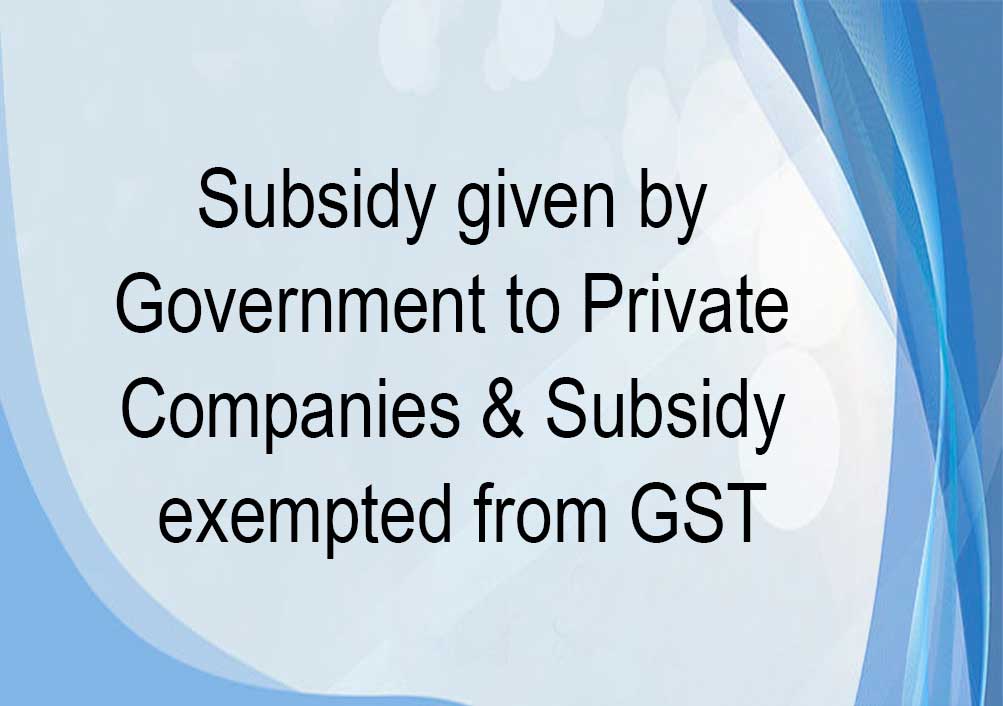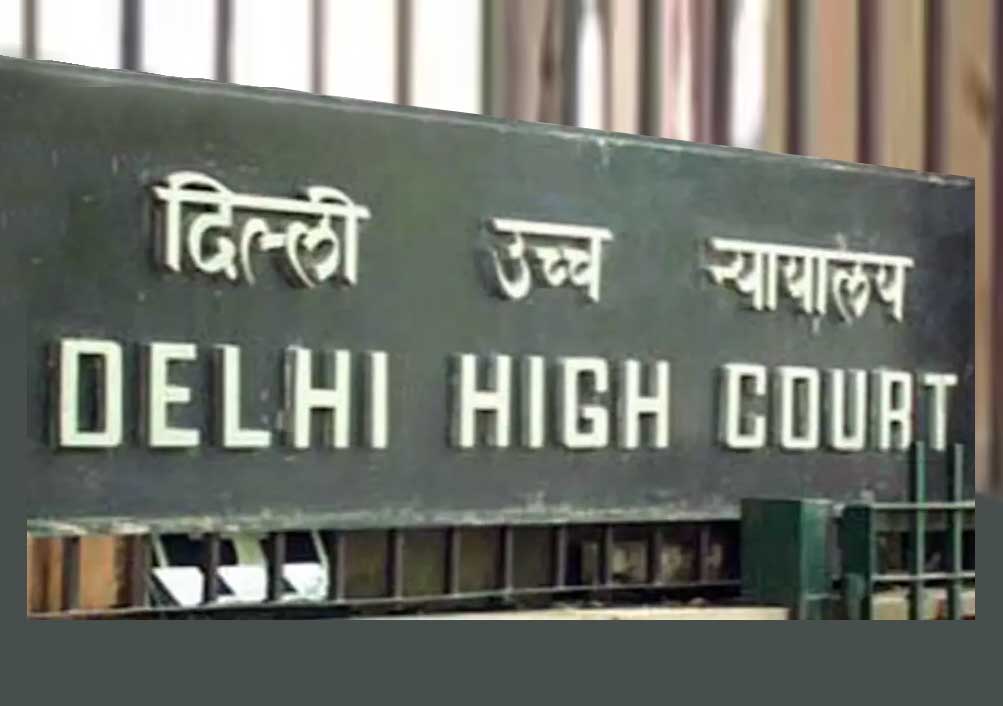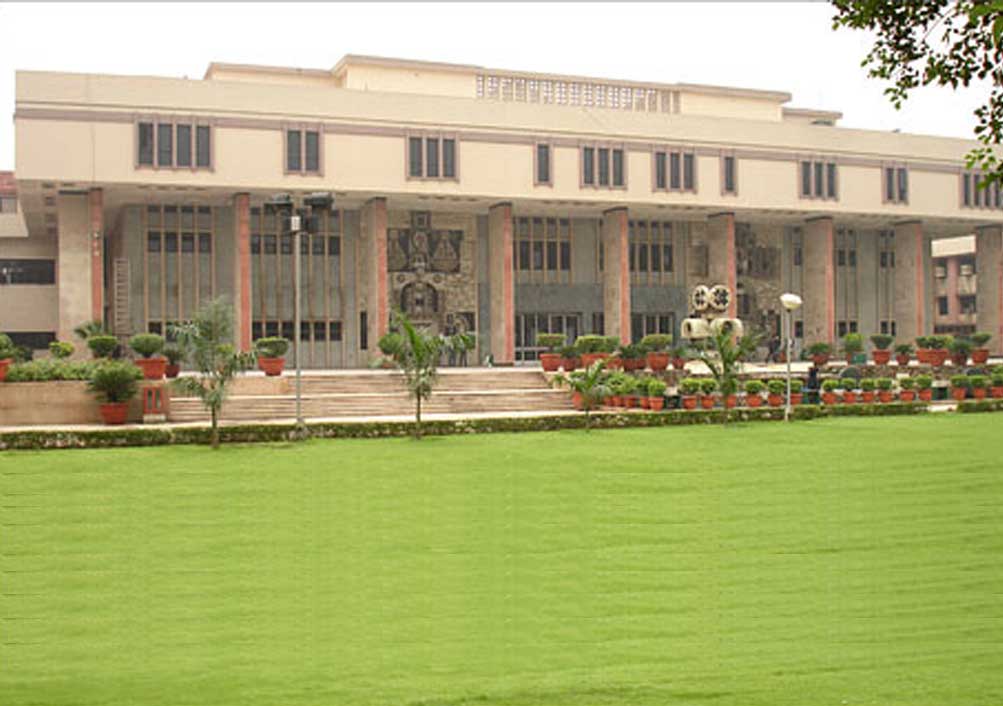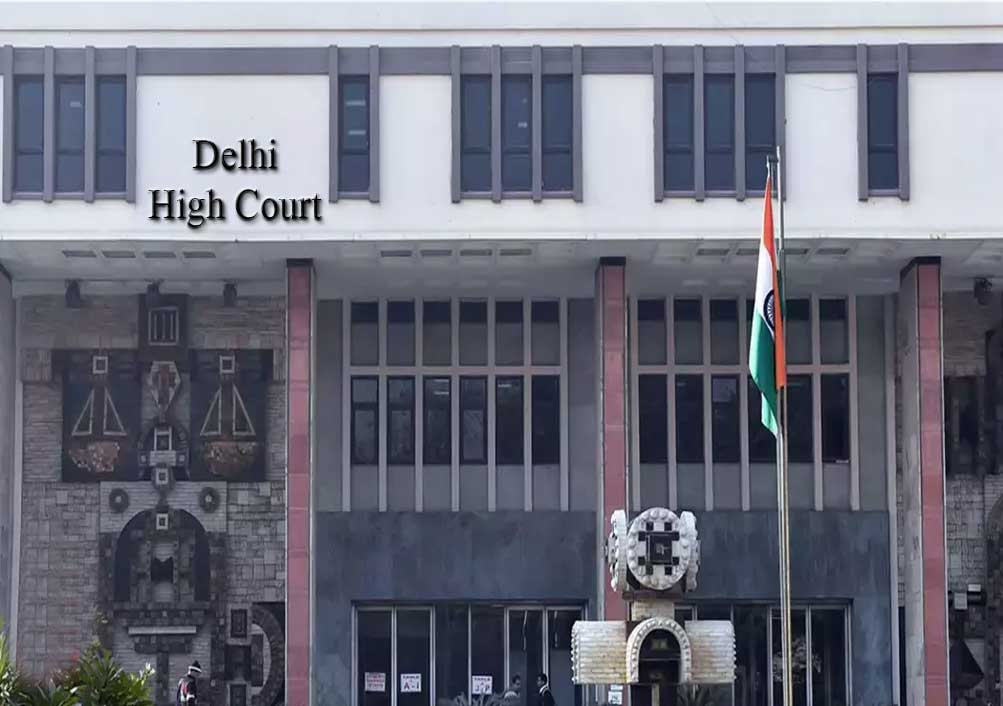Case Laws: Subsidy given by the Government to Private Companies & Subsidy exempted from GST

1. M/s Rashmi Hospitality Services Private Limited (GST AAR Karnataka)
20-09-2019
In this case the issue involved was whether the subsidy received from the state government would form part of consideration under section 2(31) of the CGST Act.
Herein, the applicant had entered into agreements with Deputy Commissioners of the districts to provide hotel/ restaurant services for the Indira Canteen through tender. He had been providing the restaurant services by serving the food to beneficiaries and collecting a specified amount from beneficiaries,which was notified.At the end of the month, the applicant was submitting a consolidated bill by showing the amount collected from beneficiaries and subsidy available from the Government.
While referring to clause (31) of section 2 of the Central Goods and Services Tax Act, the Authority of Advance Ruling, Karnataka, observed that the amount of subsidy given by the Central Government or a State Government is not a part of the consideration as per the section 2(31) of the CGST Act.
It was also observed that as per provisions of the 2(31) of SGST/CGST consideration received in the form of subsidy given by the State Government or Central Government for the supply of service of food and drinks to the end-user is excluded from the definition of consideration and hence would not form the part of the consideration and in consequence does not form the part of the turnover.
But the amount collected for the supply from the beneficiaries, which is inclusive of tax, would form the consideration on which the turnover is to be calculated after deducting the proportionate tax as the collected consideration is inclusive of tax.
Hence,it was held that the subsidy amount received from the Government of Karnataka for the supply of service of food to the ultimate beneficiaries (consumers) in Indira Canteens by the applicant is excluded from the definition of consideration and would not form the part of the turnover on which tax is liable. The consideration collected from the beneficiaries is liable to tax after deducting the tax fraction as the price collected is inclusive of tax.
https://gst.kar.nic.in/Documents/General/AAR61RashmiHospitality.pdf
2. M/s Megha Agrotech Private Limited (GST AAR Karnataka)
23-03-2020
Two main issues involved in this case were–
1. Whether under section 15(2)(e) of CGST Act, for calculating “value if taxable supply”, the subsidy amount granted to the farmer by Horticulture / Agriculture / Sericulture Department of Government of Karnataka under PMKSY scheme or any other Central / State Government approved schemes but disbursed to the supplier to be treated as “subsidy” in the hands of the supplier and to be excluded while ascertaining the “transaction value”?
2. Whether the question of inclusion or exclusion of subsidy amount in the value of taxable supply would arise under Section 15(2) of the CGST Act, when such subsidy is not impacting the transaction value, which is price actually paid or payable for the supply of goods by the customer i.e., farmers and when the subsidy is disbursed by Horticulture / Agriculture / Sericulture Department to the supplier on behalf of recipient of the supply (farmers)?
The Authority of Advance Ruling, Karnataka, observed herein that –
Coming to the issue of subsidy, it is very clear that the value of supply shall include the subsidies directly linked to the price, excluding subsidies provided by the Government. The financial assistance provided by the Government is–to–the farmer to enable him to afford the facility and Government is not making payment to, the applicant vendor nor the amount receivable by the farmer has any bearing on the price of the supply.
If the subsidies provided by the Government is directly linked to the price, then the same would be excluded from the value of taxable supply.
In the instant case, the amount receivable or received from the Government is received by the farmer and this amount may be received by him directly in option 1 or by the Bank in case of option 2 or by the applicant in option 3. The farmer has a choice of either opting option 1 or option 2 or option 3 and choice of any one of the option has no impact on the price of the supply of goods and /or services.
Further, the liability of the farmer with the applicant for the supply received by him will get extinguished only when the applicant receives the consideration and it is immaterial from whom he actually receives the amount and the amount received in only credited against the liability of the farmer with him.
Hence the method of receipt of payment has no bearing on the price of the supply and also the receipt of payment by the applicant from the Bank or the Government Department (on the authorization of the farmer concerned) is on the account of the farmer only. Hence the price is independent of the assistance amount and hence would not be covered under clause (e) of sub-section (2) of section 15 of the CGST Act.
The Authority held that the amount of assistance received by the farmer or on account of the farmer from the Government Department has no bearing on the price and hence on the value of supply made by the applicant to the farmer and is not covered under section 15(2)(e) of the CGST Act, 2017.There is no question of excluding the amount of assistance or subsidy received from the transaction value or value of taxable supply.
3. Commissioner of Income-Tax, West Bengal-II, Kolkata v. Rasoi Limited
High Court Of Judicature At Calcutta | 19-05-2011
One of the questions involved in this case was whether the Income Tax Appellate Tribunal was justified in law in allowing the Appeal of the assessee by holding that the assistance received by the assessee from the Government of West Bengal amounting to Rs.5,34,18,887/- is of the nature of capital receipt and hence non-taxable.
The Court while referring to various judgments like Saheney Steel and Press Works Ltd and CIT Vs. Ponni Sugars and Chemicals Ltd., reported in (2008) 306 ITR 392 (SC), opined that it is the object for which the subsidy/assistance is given which determines the nature of the incentive subsidy. The form of the mechanism through which the subsidy is given is irrelevant.
In this case, the object of the subsidy is for expansion of their capacities, modernization, and improving their marketing capabilities and thus, those are for the assistance on capital account. Similarly, merely because the amount of subsidy was equivalent to 90% of the sales tax paid by the beneficiary does not imply that the same was in the form of refund of sale tax paid.
As pointed out by the Supreme Court in the case of Senairam Doongarmall Vs. Commissioner of Income-tax, Assam, reported in AIR 1961 SC 1579, it is the quality of the payment that is decisive of the character of the payment and not the method of the payment or its measure, and makes it fall within capital or revenue.
Thus, in this case,the amount paid as subsidy was really capital in nature.
While answering the question in the affirmative and against the Revenue, the Court observed that in the case of CIT-1, Ludhiana Vs. Adarsh Kumar Goel, reported in (2006) 156 Taxman 257 (Punjab), a Division Bench of the Punjab and Haryana High Court was dealing with a case of subsidy granted in the form of sale tax exemption and thus, the Division Bench held that in the absence of any document or policy of the State Government to show the kind of subsidy it had granted it should be treated as a revenue receipt. In this case, having regard to the objects and reasons behind the grant of the subsidy the Court found that it is a case of capital receipt and thus, the said decision does not help the Revenue in any way.
Sign up for our weekly newsletter to stay up to date on our product, events featured blog, special offer and all of the exciting things that take place here at Legitquest.




Add a Comment